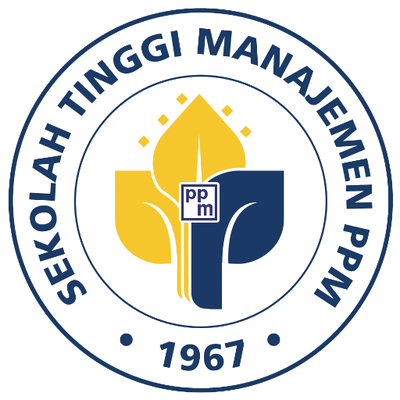Analisis Masalah Kerusakan pada Pabrik Daur Ulang Beton Hasil Konstruksi PT XYZ
Abstract
Keywords
Full Text:
PDF (Bahasa Indonesia)References
Andry, J. F., Nurprihatin, F., dan Liliana, L. (2022). Supply chain disruptions mitigation plan using six sigma method for sustainable technology infrastructure. Management and Production Engineering Review, 13(4), 72-87. https://doi.org/10.24425/mper.2022.142397
Braga, F. A., Lins, L. V., Christovam, B. P., and de Souza, O. (2023). Quality management in the covid-19 pandemic: Nursing action plan. Revista Brasileira De Enfermagem Suppl 1(76), 1-6. https://doi.org/10.1590%2F0034-7167-2022-0272
Fajar, P. D., Ikatrinasari, Z. F., Humiras, H. P., dan Ayu, W. (2019). Reducing non conformance quality of yarn using pareto principles and fishbone diagram in textile industry. IOP Conference Series Materials Science and Engineering, 508(1). https://doi.org/10.1088/1757-899X/508/1/012092
Fithri, P., Andra, D. J., Wirdianto, E., and Taufik. (2020). The use of FMEA for the quality control analysis of greige fabrics (case study in the weaving department of PT. Unitex, Tbk). IOP Conference Series Materials Science and Engineering, 847(1). https://doi.org/10.1088/1757-899X/847/1/012002
Foster, S. T. (2017). Managing quality: Integrating the supply chain. Edinburgh: Pearson.
Gaidhane, J., Karadbhajane, A., Khalatkar, A., and Ullah, I. (2022). An Application of Quality Tools to Improve the Tyre Remanufacturing Process. IOP Conference Series. Materials Science and Engineering, 1259(1), 012033. https://doi.org/10.1088/1757-899X/1259/1/012033
Ibrahim, M., dan Thawil, S. M. (2019). Pengaruh kualitas produk dan kualitas pelayanan terhadap kepuasan konsumen. Jurnal Riset Manajemen dan Bisnis (JRMB) Fakultas Ekonomi UNIAT, 4(1), 175-182. http://dx.doi.org/10.36226/jrmb.v4i1.251
International Organization for Standardization. (2023). Quality management systems — Requirements (ISO 9001:2015). Geneva: ISO.
Jing-jing, T., Sun, N., Li, S., Yang, Z., Huan-jing Z., and Fei, F. (2018). Research on failure modes of defective gasoline engine products based on pareto diagram. IOP Conference Series.Earth and Environmental Science, 189(6). https://doi.org/10.1088/1755-1315/189/6/062013
Martono, R. (2018). Manajemen kualitas. Manajemen operasi: Konsep & Aplikasi. Jakarta: Penerbit Salemba Empat.
Priyadi, A. A., dan Suyanto, S. (2019). The effectiveness of problem based learning in biology with fishbone diagram on critical thinking skill of senior high school students. Journal of Physics: Conference
Series, 1397(1). https://doi.org/10.1088/1742-6596/1397/1/012047
Rizkya, I., Sari, R. M., and Erwin. (2021). FMEA tool to analysis of blow molding machine damage. IOP Conference Series.Materials Science and Engineering, 1122(1). https://iopscience.iop.org/article/10.1088/17S57-899X/1122/1/012061/pdf
Rucitra, A. L., and Amna, A. U. F. (2021). Integration of statistical quality control (sqc) and fault tree analysis (FTA) in the quality control of resina colophonium production in company X. IOP Conference Series.Earth and Environmental Science, 924(1). https://iopscience.iop.org/article/10.1088/1755-1315/924/1/012062/meta
Sagnak, M., Kazancoglu, Y., Yesim Deniz, O. O., and Garza-Reyes, J. (2020). Decision-making for risk evaluation: integration of prospect theory with failure modes and effects analysis (FMEA). The International Journal of Quality & Reliability Management, 37(6), 939-956. https://doi.org/10.1108/IJQRM-01-2020-0013
Yunitasari, E. W., Widiastuti, R., Wisnuaji, B. S., Erwinda, M., and Sutanta, E. (2020). Analysis of the quality of wheel chain products at UPT Logam Yogyakarta using FMEA Method. Journal of Physics: Conference Series, 1456(1). https://iopscience.iop.org/article/10.1088/1742-6596/1456/1/012033
DOI: https://doi.org/10.34149/jmbr.v20i3.588
Indexing
JMBR Editorial Office: PPM School of Management, Jl. Menteng Raya 9-19 Jakarta 10340 Phone: 021-2300313 ext 2354

License
JMBR is using CC BY License
This work is licensed under a Creative Commons Attribution 4.0 International License.


















